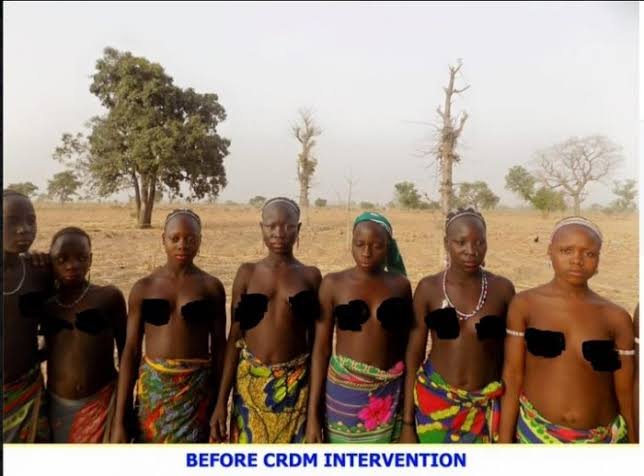
Kambari People are found in an ancient rural community in Rijau Local Government Area of Niger State. It is located about 260 kilometers from the state’s capital. The people are one of the few primitive tribes in Nigeria; the people still practice nudity. Nudity is part of their way of life as their men, women and young girls go about their day-to-day activities in the nude. They are half-covered during their market days where they sell their agricultural produce. There is no sign of infrastructural development in their community (the region cannot be found on google map) despite this, they all live in peace. They are a forgotten tribe who are satisfied with their simple way of life and their lack of governmental support for a sustainable community.
LANGUAGE
Hausa is the most widely spoken language in the Northern parts of Nigeria but the Kambari People are an exception. They neither speak English nor Hausa, but speak their native Kambari.
TRANSPORTATION
In this era of civilization, there is no vehicle and no road network in their community. Donkeys are used as the only means of transport in this part of the world.
RELIGION
The Kambari People are one of the few tribes in Nigeria that doesn’t practice Christianity or Islamic religion. Instead, they are pagans who worship a god called Magiro. They believe in curses, witchcraft, and magic. Their god is a major part of their tradition as they hold a festival annually to celebrate the god.
MAJOR OCCUPATION
The people are largely agrarian and nomadic. In the bush where they settle, they cultivate crops on a large scale, thereby feeding other people in their area. The most popular crops produced are corn, millet, sorghum, rice, etc. They also rear cattle and livestock such as goats, chickens and so on.
MARRIAGE
The people cherish early marriage. Parents believe marrying off their children at a young age is the best gift they could give them. Men save up through their harvests and use the money to get married. The people are said to marry themselves since no one understands their culture. A man can marry up to four wives once he can take care of them. Marriage here is celebrated by slaughtering goats and cows for food while the parents of the bride cook food for the groom. Once the food is eaten, the marriage is contracted.

